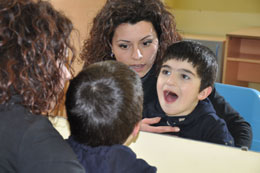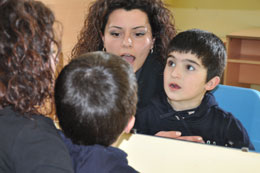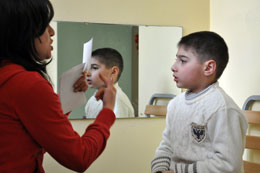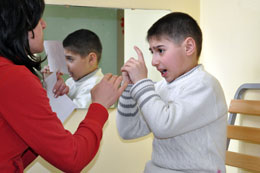ICDC provides center- or home-based treatment consisting of one-on-one therapy, social language groups, or co-treatment with a behavioral therapist, depending on the individual child’s needs.


Our speech therapists focus on honing a wide range of skills, including:
- Nonverbal communication. This method teaches self-expression via gesture and training with picture exchange cards (or PECS). Many children with special needs begin school with limited language skills. PECS is used to assist in building concrete and pragmatic vocabulary.
- Comprehension
- Expression
- Sound production
- Social use of language
A child with autism who experiences difficulties in making him- or herself understood may manifest frustration in a range of unproductive behaviors. Because speech therapy improves social communication skills, children can be taught to use those tools as an alternative to destructive or unpleasant actions.


For speech therapy to be most beneficial, parents and educators should follow these four principles:
- Speech therapy should begin early in a child’s life and be frequently practiced.
- Therapy should be rooted in everyday experiences in the child’s life.
- Therapy should encourage spontaneous communication.
- Any communication skills learned during speech therapy should be applicable in multiple situations.
 INTERNATIONAL CHILD DEVELOPMENT CENTER “They may forget what you said but they will never forget how you made them feel” Carol Buchner
INTERNATIONAL CHILD DEVELOPMENT CENTER “They may forget what you said but they will never forget how you made them feel” Carol Buchner